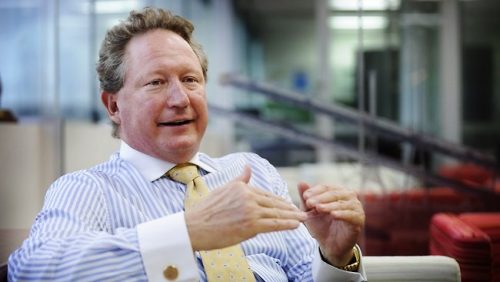Melbourne, May 31: The 2016 Global Slavery Index published by Australian human rights group Walk Free Foundation, found that almost 58 per cent of the world’s slaves are in five countries: India, China, Pakistan, Bangladesh and Uzbekistan.
India has the dubious distinction of having the highest number of people in the world trapped in modern slavery with 18.35 million victims of forced labour – ranging from prostitution and begging; amongst its 1.3 billion population.
The research conducted by Gallup, examined practices such as human trafficking, debt bondage, child exploitation and forced marriage, surveying 43,000 people in 25 countries.
Billionaire mining magnate, Andrew Forrest’s Walk Free Foundation found that there are an estimated 45.8 million people living in slavery in 2016 – including 4300 in Australia according to this year’s Index, released today.
This compares to 35.8 million in 2014.

Fortescue Metals Group chairman, Andrew Forrest talking about the scale of slavery, identified two very unconnected industries, where exploitation of workers is rampant.
He said that food production and the sex industry are two areas where workers were vulnerable to exploitation and servitude and that included women and children.
“There is also forced prostitution.”
He said that Australian consumers unintentionally support the practice of slavery overseas, when there is consumption of products from companies that engage labour in inhuman and slavery-like conditions.
He urged consumers to take notice of the “supply chains” of their purchases and engage in a duty-of-care like inquiry and not be ‘indifferent’ when shopping.
“Slavery-like conditions can only persist in Australia because people think it doesn’t happen,” he said.
Mr Forrest said that upon ordering an audit, found “abhorrent” labour practices in Fortescue Metals’ supply chains and asked for other corporations and governments to do the same.
“From the food processing industry in the eastern states to the tomato growing industry in Western Australia, we have unfortunately discovered that forced labour exists in Australia,” he said.
“Businesses that don’t actively look for forced labour within their supply chains are standing on a burning platform,” he wrote in the report.
Upon release of the 2016 Global Slavery Index, Mr Forrest is calling for leaders of world’s largest economies to abolish slavery by enacting laws to eradicate forced labour.
He called for transparency in the supply chains to the biggest economies including US, China, and India.
He is campaigning for adoption of UK’s Modern Slavery Act in Australia, wherein large corporations are required to report on measures taken to protect their own supply chains from servitude.
Behind India, other Asian countries occupying the top five places are China (3.39 million), Pakistan (2.13 million), Bangladesh (1.53 million) and Uzbekistan (1.23 million) in the Slavery Index 2016 list.
Ramakrishna VenuGopal
Similar Posts by The Author:
- The Untold story of the ANZAC-India friendship
- Australia Post – new performance standards from 15 April
- Premier’s department fighting the release of SECRET hotel quarantine documents
- Vic Gov funds 13 programs that help international Students
- Nationals call for more funding to fight rising crime rates in regional Victoria

